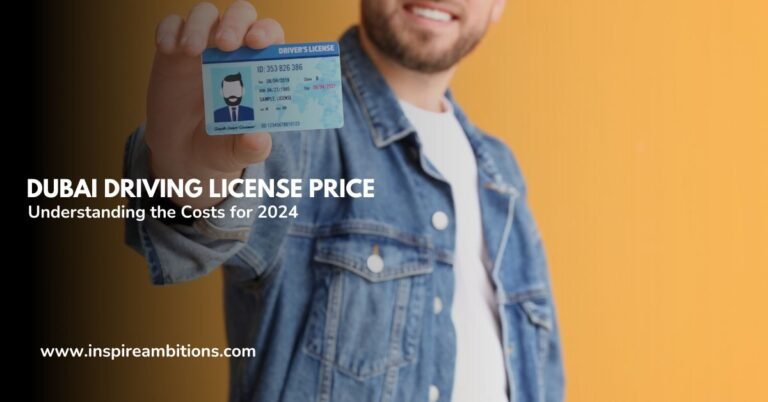Social Media Restrictions in UAE – What You Need to Know
“Time is money when it comes to knowing the rules on social media use in the UAE.” The UAE has strict social media regulations to protect privacy and uphold cultural values. Understanding these rules is crucial to avoid hefty fines or legal trouble.
In the UAE, social media users must adhere to specific guidelines. Some key regulations include not posting others’ pictures without permission, respecting privacy, and avoiding offensive content. Violating these regulations can result in fines of up to Dh1 million, highlighting the importance of compliance.
Familiarize yourself with the guidelines for social media users and Positive Digital Citizenship. These rules are designed to maintain a respectful and safe online environment, which is crucial for both residents and visitors. Engage responsibly to enjoy a hassle-free social media experience in the UAE.
Social Media Restrictions in UAE
The UAE has established stringent regulations on social media usage to ensure public conduct aligns with national valores and legal standards. Key factors include the legal framework, licensing requirements, and content restrictions.
Understanding Social Media Restrictions in UAE
lets explore the restrcitions:
Legal Framework and Cybercrime Law
The UAE’s legal framework for social media is heavily influenced by its Cybercrime Law, which aims to protect digital spaces from illegal activities. The law covers various offences, such as defamation, invasion of privacy, y cyberbullying. Violations can result in fines, imprisonment, or both.
Under the Cyber Crimes Law, posting offensive or derogatory content, hate speech, and spreading false information are prohibited. The law emphasizes respect for public morals y cultural sensitivities.
Regulations by the National Media Council
To operate as a social media influencer, you must secure a license from the National Media Council. This mandate, introduced in 2018, requires influencers to pay an annual fee of Dh15,000. The regulation aims to monitor and control electronic media activities, ensuring compliance with national standards.
The NMC oversees the National Standards for Media Content, which include strict guidelines on what can and cannot be shared online. Content promoting gambling, pornography, or any material that violates public morals is strictly prohibited.
Social Media Usage and Public Conduct
The UAE promotes positive online behaviour through a set of guidelines outlined by government officials. The Telecommunications and Digital Government Regulatory Authority plays a significant role in this.
Emiratis are encouraged to reflect the country’s valores, as stated in social media guidelines by UAE leaders. Respecting cultural norms, avoiding gossip, and not engaging in activities that could harm others are vital points. Violations can lead to reputational damage and legal repercussions.
Content Restrictions and Prohibitions
Content that is offensive, derogatory, or disrespectful to religion, particularmente islam, is strictly forbidden. The law also prohibits hate speech, racism, y discrimination.
Any promotion of illegal activities, tales como el trading of prohibited goods o servicios, terrorism, y drug-related content, can lead to severe penalties. Impersonation y phishing are also criminal offences with significant consequences.
Penalties and Enforcement
Penalties for violating social media laws in the UAE are stringent. Offenders can face fines up to AED 1 million, as reported by Tiempos de Khaleej. Imprisonment is also a possible consequence of serious offences like defamation and invasion of privacy.
Enforcement is rigorous, with authorities monitoring online activities to ensure compliance. Awareness campaigns are periodically conducted to educate the public about these laws and the importance of adhering to them.
In conclusion, understanding and abiding by the UAE’s social media laws is crucial for maintaining compliance and avoiding severe penalties.
The Impact of Restrictions on Users and Providers
Social media regulations in the UAE have significant effects on influencers, service providers, and international media. Understanding these impacts is essential for navigating the digital landscape effectively.
Effects on Social Media Influencers and Advertising
Social media influencers in the UAE face strict regulations. They must obtain licenses to promote brands and products legally. This process involves approval from the National Media Authorities and adherence to guidelines from the Telecommunications and Digital Government Regulatory Authority (TDRA).
Advertising also falls under scrutiny. Influencers must ensure their content complies with standards to avoid penalties. Ethical guidelines forbid misleading claims and require disclaimers for sponsored content.
Compliance for Service Providers
Service providers, including Etisalat and DU, have to follow the UAE’s stringent laws. Compliance involves monitoring user activities and cooperating with government requests. The TDRA oversees these regulations, ensuring service providers enforce rules consistently.
Internet service providers are required to block platforms that don’t conform to regulations. This affects both local and international providers, necessitating a thorough understanding of the legal framework. Non-compliance can result in hefty fines.
Guidance for International Media and Content Creators
International media entities and content creators must navigate these restrictions carefully. They need to acquire permission from local authorities to operate legally. It includes meeting Abu Dhabi’s media activities criteria and securing approval from relevant bodies.
Content creators should also be mindful of local sensitivities. Avoiding topics deemed sensitive, such as government criticism or security matters, is crucial. Adapting content to fit within these boundaries helps maintain a compliant and successful presence in the UAE digital media environment.







